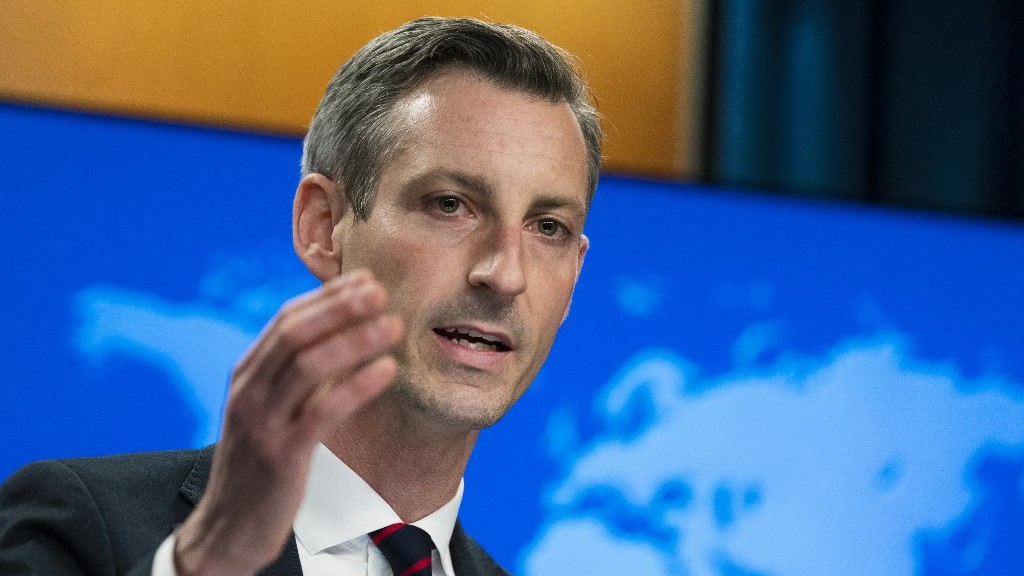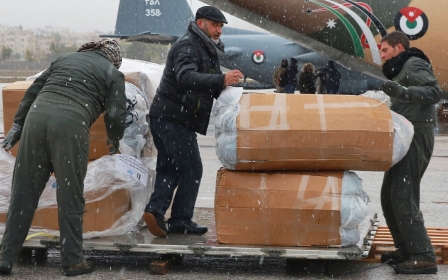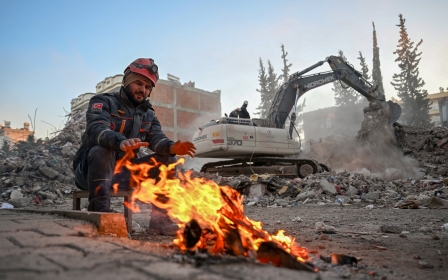Turkey-Syria earthquake: This is not about Assad. Syrians simply need aid

As the world pitches in to help Turkey’s earthquake victims, the continued suffering of the Syrian people is being fuelled by domestic political factors in the US and a myopic view of the country. This week, State Department spokesperson Ned Price said that 'the US approach to the Assad regime has not changed', and reiterated the US stance to refuse talks with the Syrian government on disaster relief.
Yet no one has asked the Americans to negotiate with Syrian President Bashar al-Assad; the issue is about assisting the people of Syria. While the UAE, Algeria, India and others rush to help Syrians, Washington is still caught up in the politics of aid, as analysts criticise the agencies and foreign governments that are providing aid to the Syrian government.
Although some of this criticism might be justified, the only people that are being hurt in the process are ordinary Syrians
As flight trackers highlight the lack of air traffic over Syria, there are plenty of flights landing to deliver aid in Aleppo and Damascus. The question is more about a will than a way. Some argue that aid should only be delivered directly to groups based in northwestern Syria, so that it is out of the Syrian government’s reach, while others maintain that only Damascus can deliver aid. In the middle, Syrians suffer.
The divide over aid delivery is a result first and foremost of the international sanctions targeting Syria. The head of the UN World Food Programme, David Beasley, credited as one of the organisation’s best fundraisers, has explained time and time again that money should be used to help Syrians in the country, so they are not pushed to migrate. Those critical of such an approach seem to forget that it does not aim to support the Assad government, but rather to highlight the need to work in all parts of the country.
It should come as no surprise that Beasley’s term was extended last year, despite reports that the Biden administration objected. Beasley thinks pragmatically on global food crises, whereas the US administration and its Syria advisers appear to be focused on one man and his isolation, rather than the overall good of the Syrian people. That, too, has been a failing policy, as the region has been re-engaging with Assad and actively providing assistance after the earthquake.
New MEE newsletter: Jerusalem Dispatch
Sign up to get the latest insights and analysis on Israel-Palestine, alongside Turkey Unpacked and other MEE newsletters
Breeding mistrust
Before the war, Syrian healthcare was the envy of the region. More than 1.5 million Iraqis had made Syria home, and a Brookings analysis described a welcoming environment in the country. I have written before about how sanctions have affected Syria’s healthcare sector, and collaborated with Peter Oborne to quote top diplomats from the UK, Australia and Japan on the need to remove sanctions to help the Syrian people.
US-based professor David Lesch - who knows Syria better than most, having authored numerous books and conducted back-channel talks between Washington and Damascus - told Middle East Eye: “The sanctions regime against the Syrian government has become so embedded in the Washington foreign policy bureaucracy that it has debilitated well-intentioned attempts to establish any sort of dialogue with the Syrian government on specific issues."
“It has also bred a level of mistrust on both sides that has made it very difficult to find any sort of common ground, even on humanitarian issues such as the earthquake,” he noted.
Brad Hoff, a former US marine who lived in Syria and coauthored the book Syria Crucified, told MEE: “Such a catastrophe demonstrates more than ever that the unilateral US sanctions on the Syrian government have only hurt innocent people who can’t catch a break.
“The sanctions are strangling the very people being now pulled from the rubble,” he added. “Humanitarian aid can flow unhindered if the US recognises the reality. Even well-known church organisations can work, but are prevented from [doing so] due to the threat of sanctions or being bullied by certain DC crowds.”
Dubious strategy
Pakistan’s ambassador to Syria, Saeed Khan, has also expressed concerns about the current approach, telling MEE: “The best way to get two countries closer to each other, or if there is a desire to change the thinking of a society, then it is imperative to interact with them in the fields of education and healthcare … The present strategy will not deliver the results that are desired.”
While UN agencies, along with foreign embassies and charities, work to help the Syrian people in the wake of the devastating earthquake, others continue to criticise the approach on the ground. And although some of this criticism might be justified, the only people that are being hurt in the process are ordinary Syrians.
Meanwhile, Assad and his government are increasingly being welcomed in regional capitals, as more and more embassies are reopening in Damascus, regardless of what Price or certain analysts are tweeting about in DC.
The earthquake victims are being helped by the foreign governments sending planes to Damascus. Helping Syrians on the ground through charities operating in government-held areas, or by talking with Syrian doctors or foreign embassies, does not make one pro- or anti-Assad.
Unfortunately, the debate in Washington has largely been reduced to “either isolate Assad or become a sympathiser”. Such rhetoric only hurts the Syrian people.
The views expressed in this article belong to the author and do not necessarily reflect the editorial policy of Middle East Eye.
Middle East Eye delivers independent and unrivalled coverage and analysis of the Middle East, North Africa and beyond. To learn more about republishing this content and the associated fees, please fill out this form. More about MEE can be found here.







